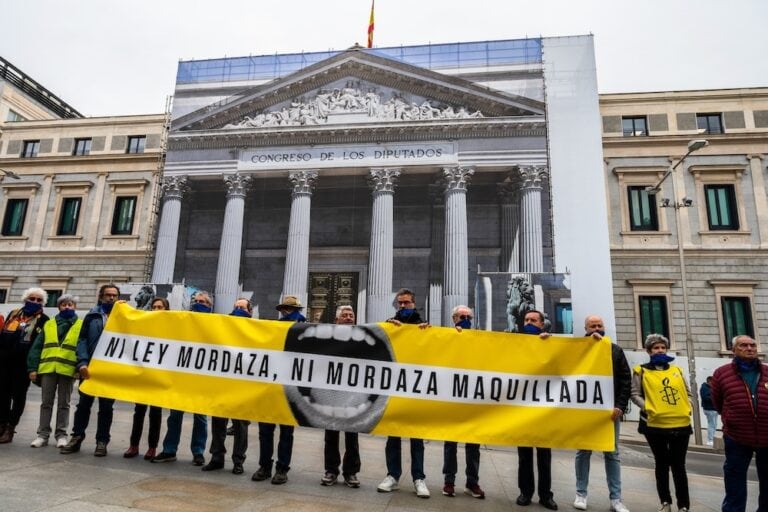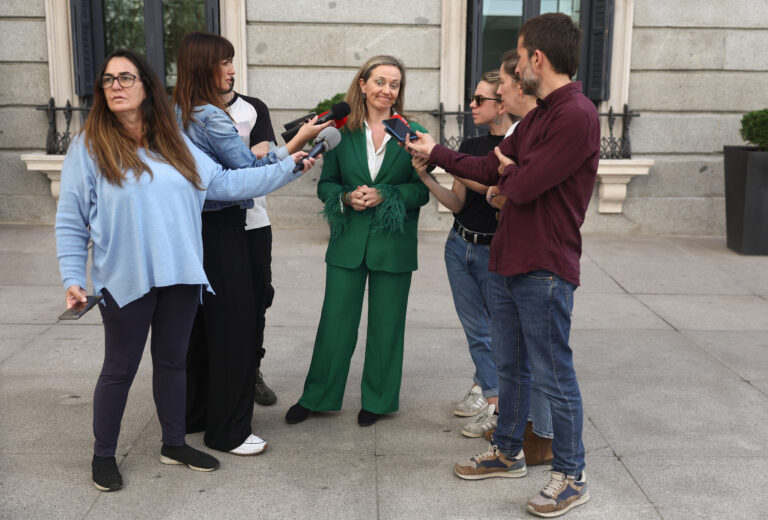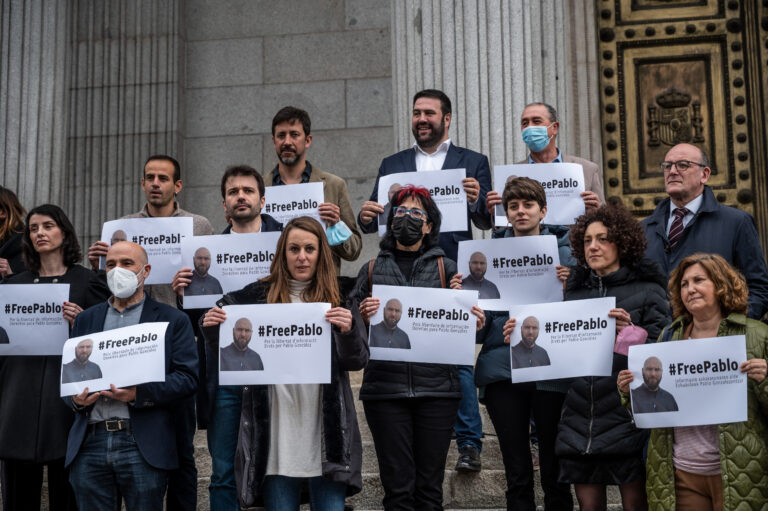(WPFC/IFEX) – The following is a 15 January 2009 WPFC press release: WPFC Submits Written Comments before European Court of Human Rights in the Case of Spanish Journalist José Luis Gutiérrez Reston, USA, Jan. 15, 2009 – The World Press Freedom Committee ( http://www.wpfc.org ) – an organization representing 45 press freedom groups from throughout […]
(WPFC/IFEX) – The following is a 15 January 2009 WPFC press release:
WPFC Submits Written Comments before European Court of Human Rights in the Case of Spanish Journalist José Luis Gutiérrez
Reston, USA, Jan. 15, 2009 – The World Press Freedom Committee ( http://www.wpfc.org ) – an organization representing 45 press freedom groups from throughout the world – along with six other leading organizations has submitted written comments before the European Court of Human Rights (ECHR) in the case of Spanish journalist José Luis Gutiérrez, who has exhausted all national recourses to fight 12 years of judicial harassment in Spain.
The comments, written by WPFC’s General Counsel Kevin Goldberg, focuses on the fundamental press freedom principles that were violated by the 1996 indictment of Mr. Gutiérrez under charges pressed by the Moroccan Crown, who felt the honor of then-King Hassan II was insulted by an article published by Diario 16, a now-extinct newspaper whose editor-in-chief at the time was Mr. Gutiérrez.
The story, written by reporter Rosa María López, the other defendant in the case along with Diario 16 itself, dealt with the seizure in the Spanish port of Algeciras of five tons of hashish inside a truck belonging to the Moroccan Royal Crown. Even though the story quoted police sources and was proven accurate, the defendants were found guilty and sentenced by four Spanish courts. In April 2007, Gutiérrez finally took his case to the ECHR after exhausting all legal recourses, including the Constitutional Tribunal, Spain’s highest court.
“José Luis Gutiérrez and Rosa María López were convicted and sentenced under Spain’s 1966 Press and Printing Law, a law which was directly inherited from the Franco Dictatorship,” reads WPFC’s written comments. “This law, though clearly unconstitutional, is still in the Spanish law books, even though the country started its democratic period more than 30 years ago. One of the unfortunate side effects of the law is that it establishes what in Spain is known as the ‘cascade effect’; that is, it not only holds the journalist responsible and liable for the speech at issue, but also the publisher and the editor-in-chief of the publication.”
The signatories of the WPFC written comments are Committee to Protect Journalists, International Association of Broadcasting, International Federation of the Periodical Press, International Press Institute, Inter-American Press Association and World Association of Newspapers. All these groups are members of the Coordinating Committee of Press Freedom Organizations (CCPFO).
According to the comments, “Laws punishing speech that reports on, comments about or criticizes public officials have no place in a democratic society. Whether these laws impose onerous penalties for defamatory speech or take the form of ‘insult laws’ (or as they are known in Spanish-speaking nations, ‘desacato’ laws), they are intended only to punish news media, journalists or other persons who may seem to have insulted or disparaged a public leader or official.”
“We urge the European Court of Human Rights to declare Mr. Gutiérrez’s case null and void, to reinstate his good name, to order the Spanish State to eliminate the two laws that were used to indict and sentence him, and to order the Spanish State to financially compensate him after more than a decade of unjust judicial harassment,” said WPFC Executive Director Mark Bench.
The comments also focus on another fundamental press freedom principle supported by ECHR jurisprudence, that public figures should receive less, not more, protection from supposed insult than ordinary citizens. This arbitrary protection, in many instances exclusive for a select few public officials, dates back at least to the Roman Empire, which instituted it to shield the emperor from the criticism of the rest of society.
The WPFC comments were delivered to the European Court in Strasbourg, France, via overnight courier, following the court’s instructions, which also have established a March 26 deadline for the Spanish State to submit its legal response.
The World Press Freedom Committee is an international umbrella organization that includes 45 journalistic groups – print and broadcast, labor and management, journalists, editors, publishers and owners on five continents – united in the defense and promotion of press freedom. The WPFC primarily focuses on monitoring threats that develop at UNESCO, the UN and other parts of the UN system; promoting a global common front against restrictions on news through leadership of a worldwide Coordinating Committee of Press Freedom Organizations. WPFC also focuses on the reform or elimination of insult and criminal defamation laws, considered powerful censorship tools used to stifle the news media throughout the world.
The CCPFO – an alliance of eight of the world’s most prestigious press freedom organizations – cooperates on projects and protests, jointly sponsors a Fund Against Censorship to financially support the legal defense of journalists under judicial harassment, and analyzes and issues opinions about information on press freedom trends and threats. Since 1981 the group has met twice a year, with rotating hosts, to exchange information and coordinate activities.
The CCPFO is comprised of the following organizations: Committee to Protect Journalists, Inter American Press Association, International Association of Broadcasting, International Federation of the Periodical Press, International Press Institute, North American Broadcasters Association, World Association of Newspapers and World Press Freedom Committee (WPFC).
Updates the Gutiérrez case: http://ifex.org/en/content/view/full/83172


